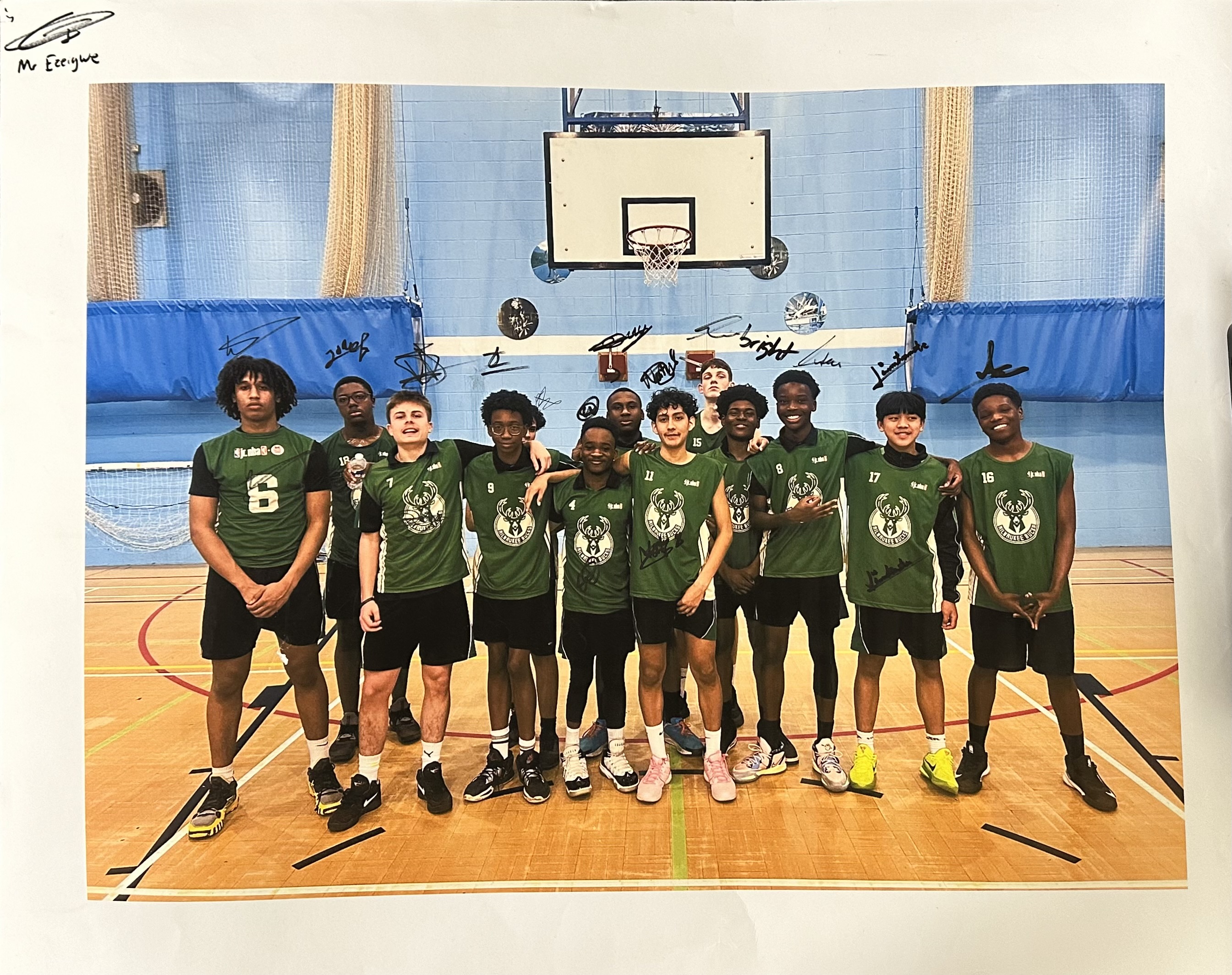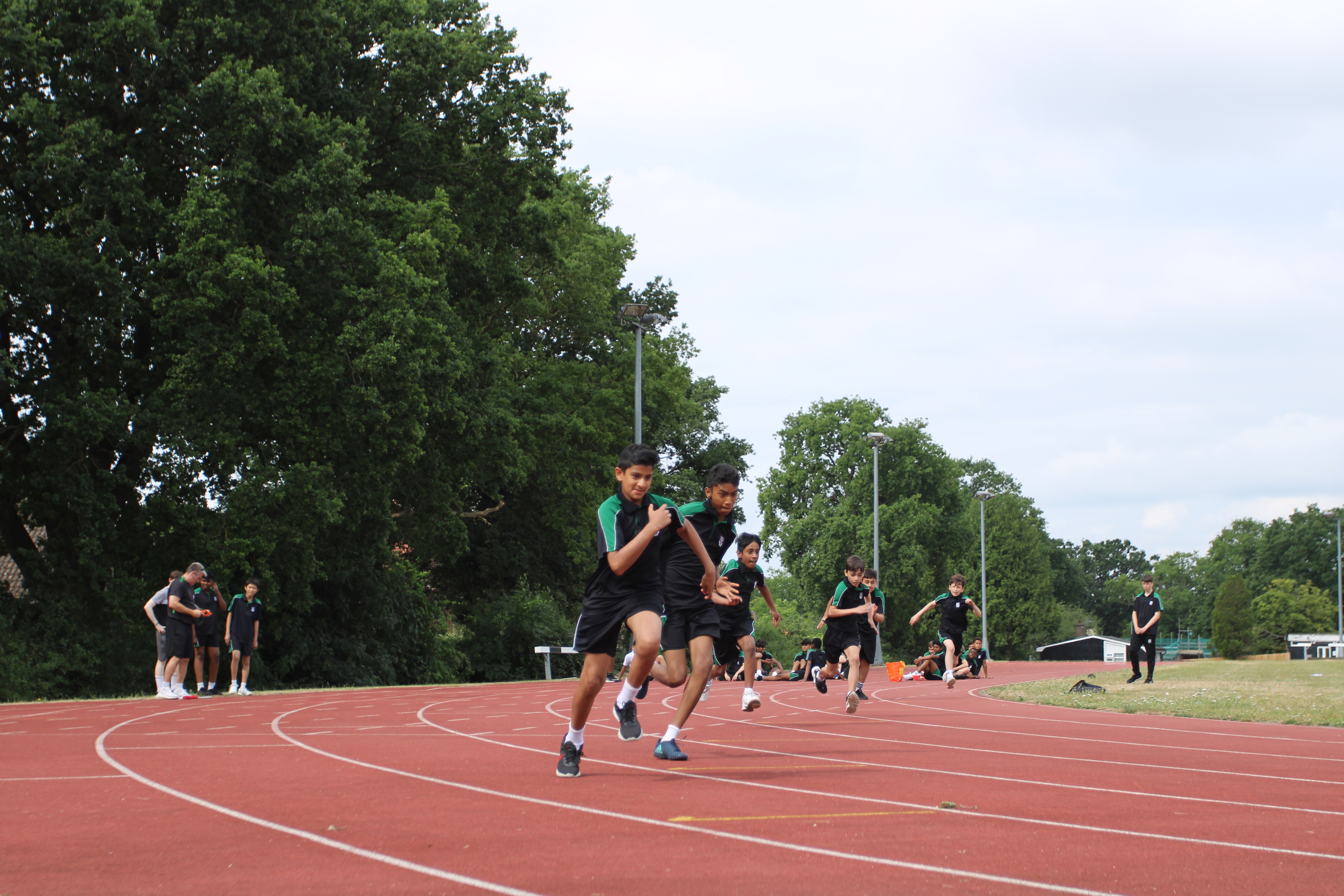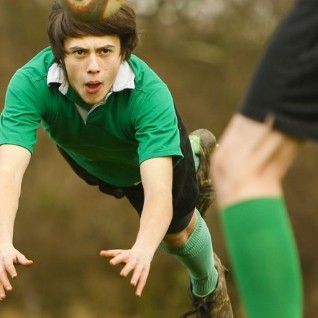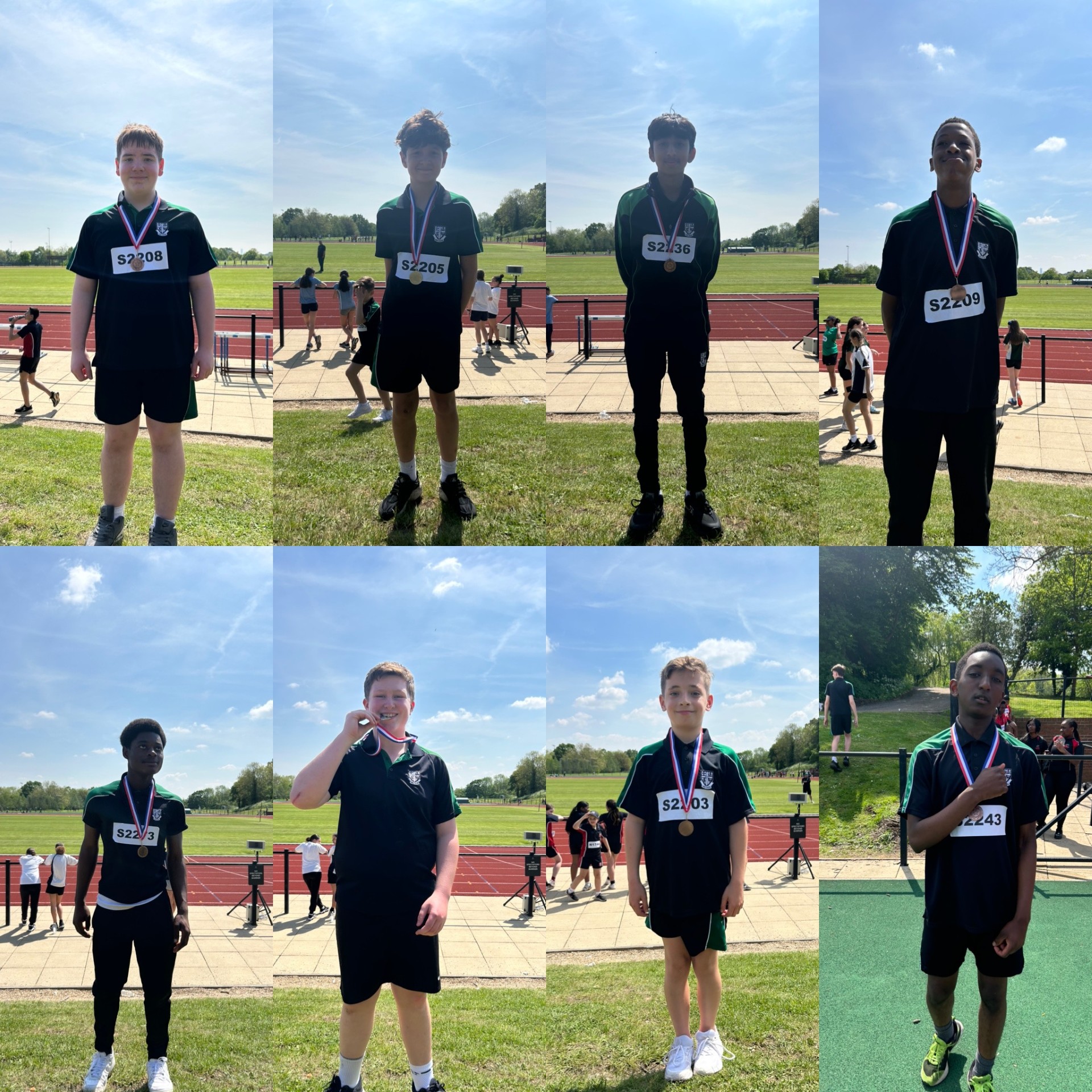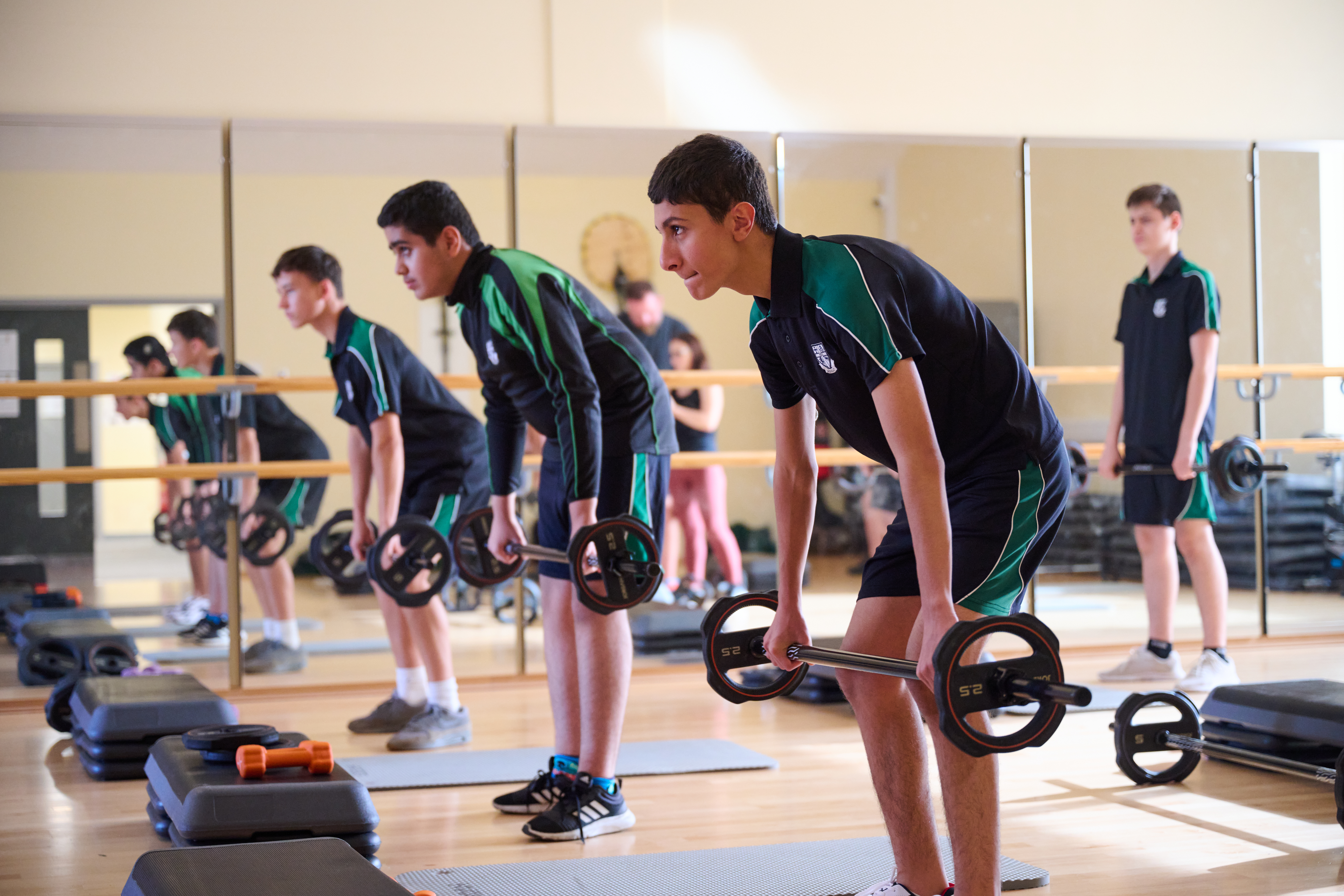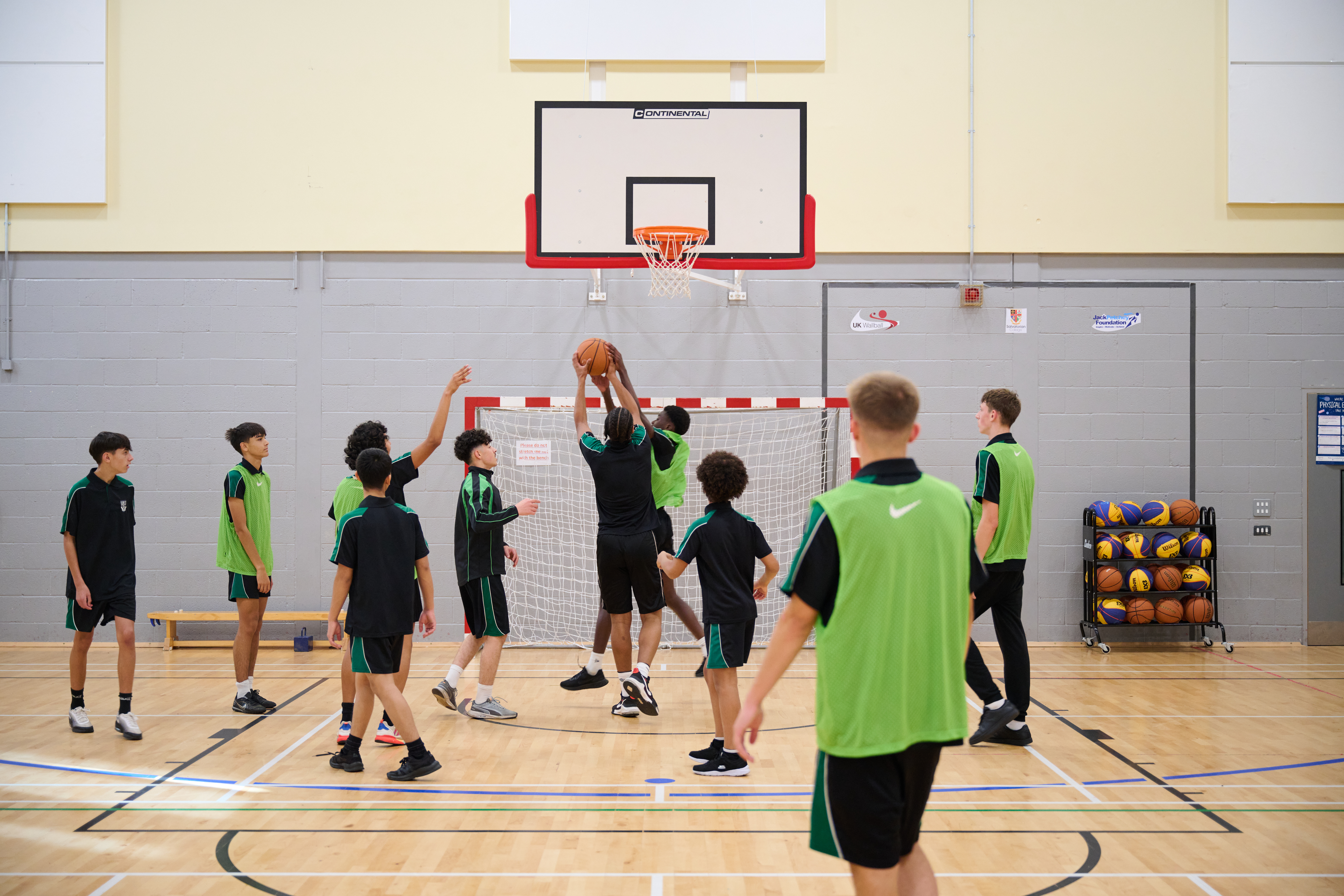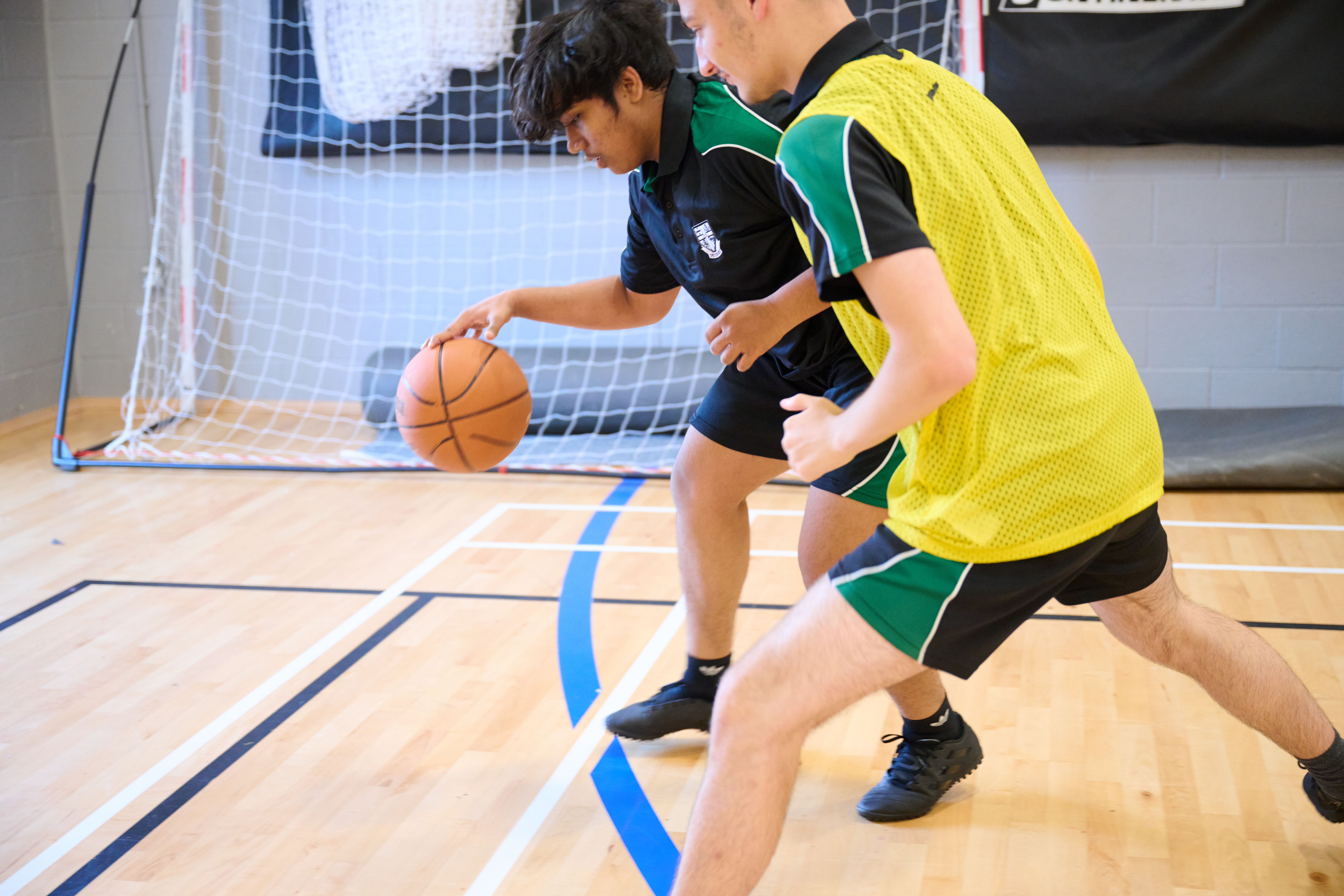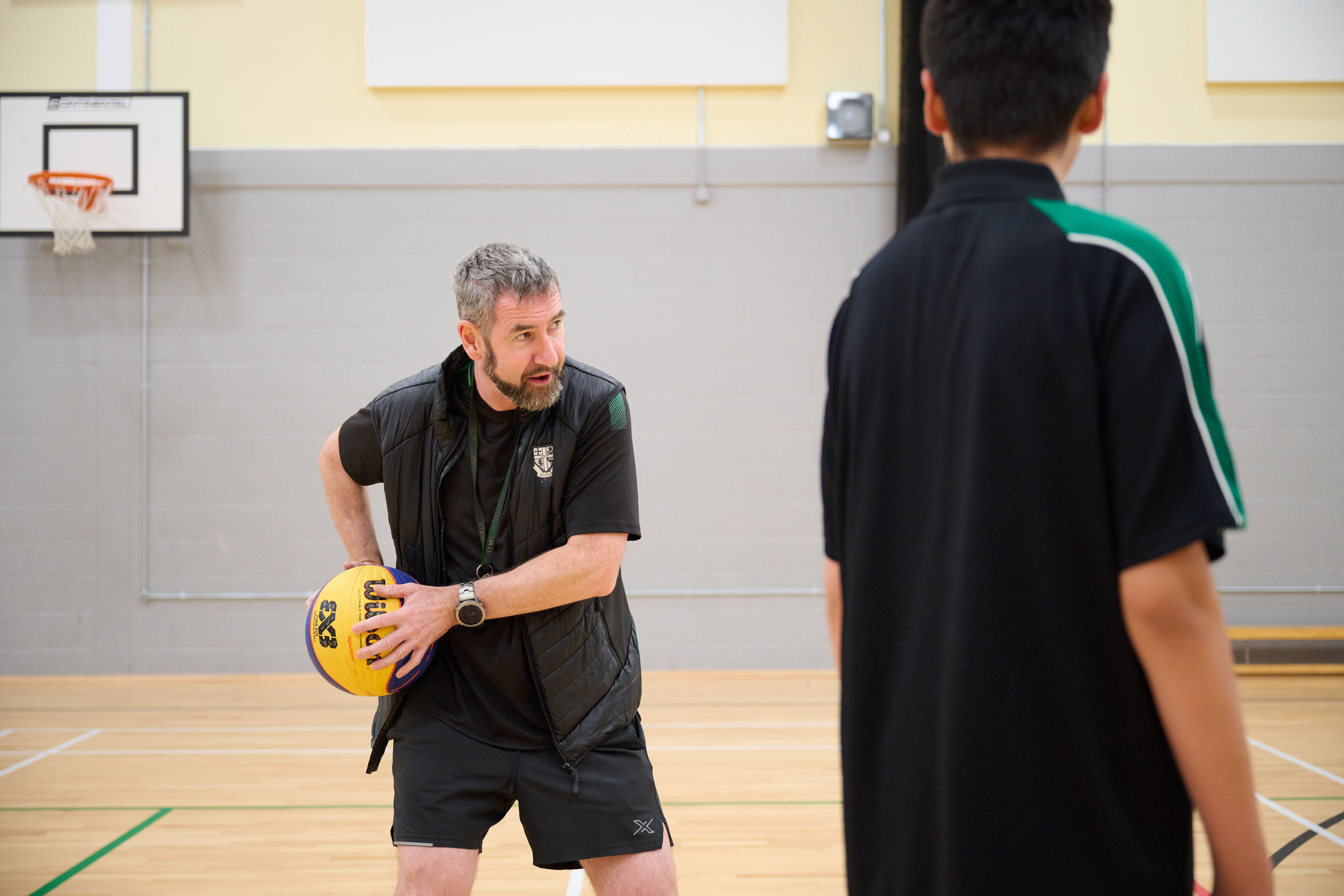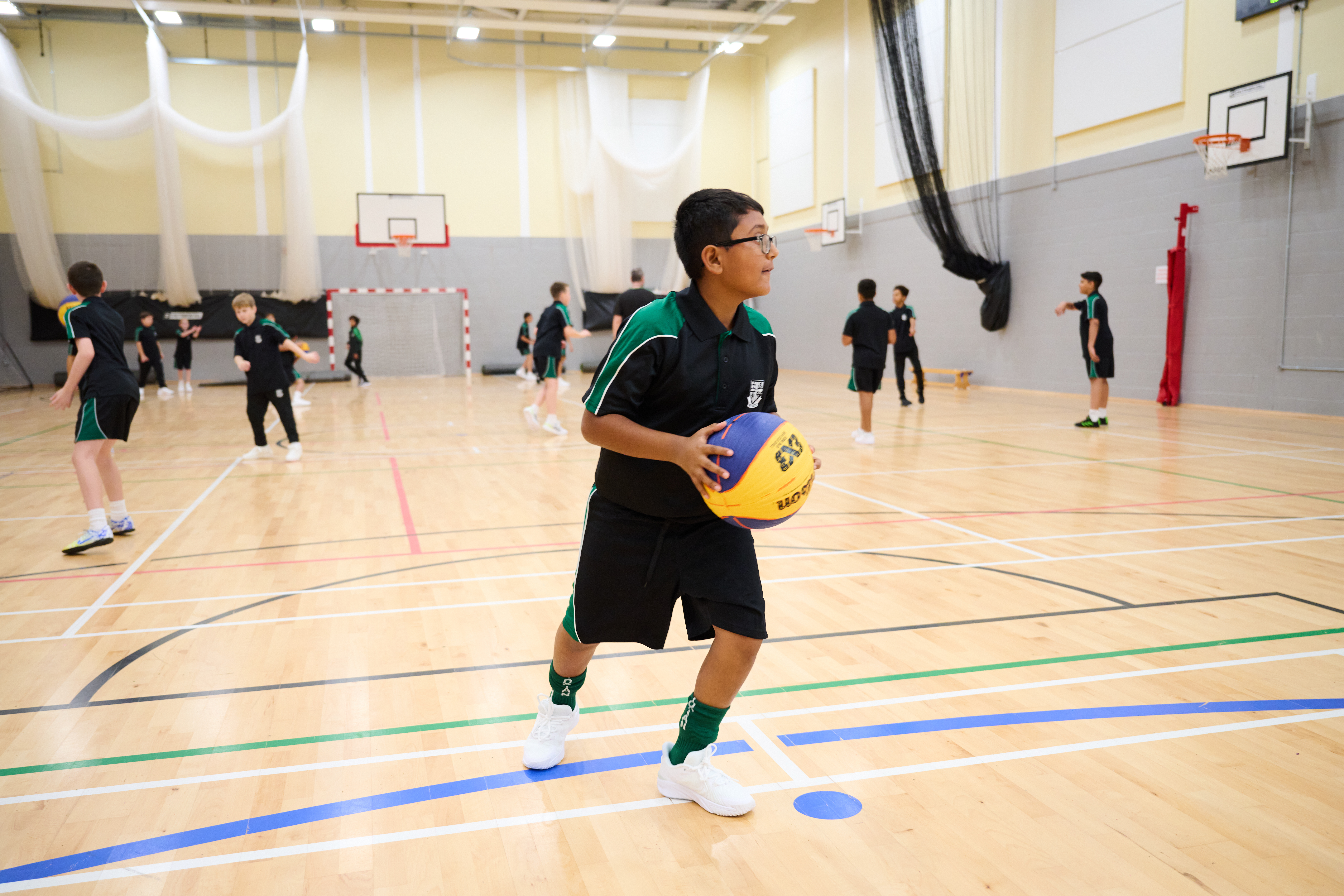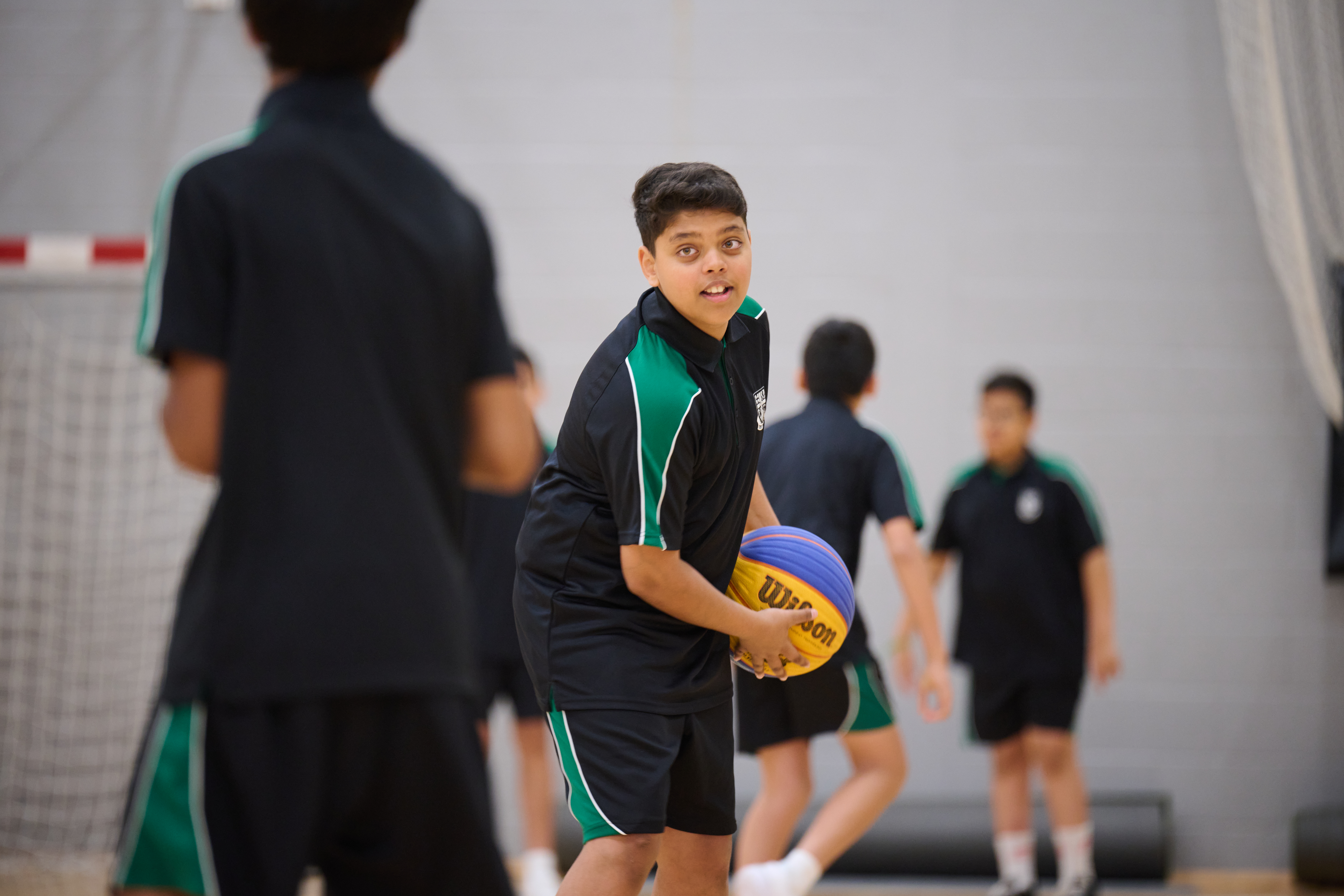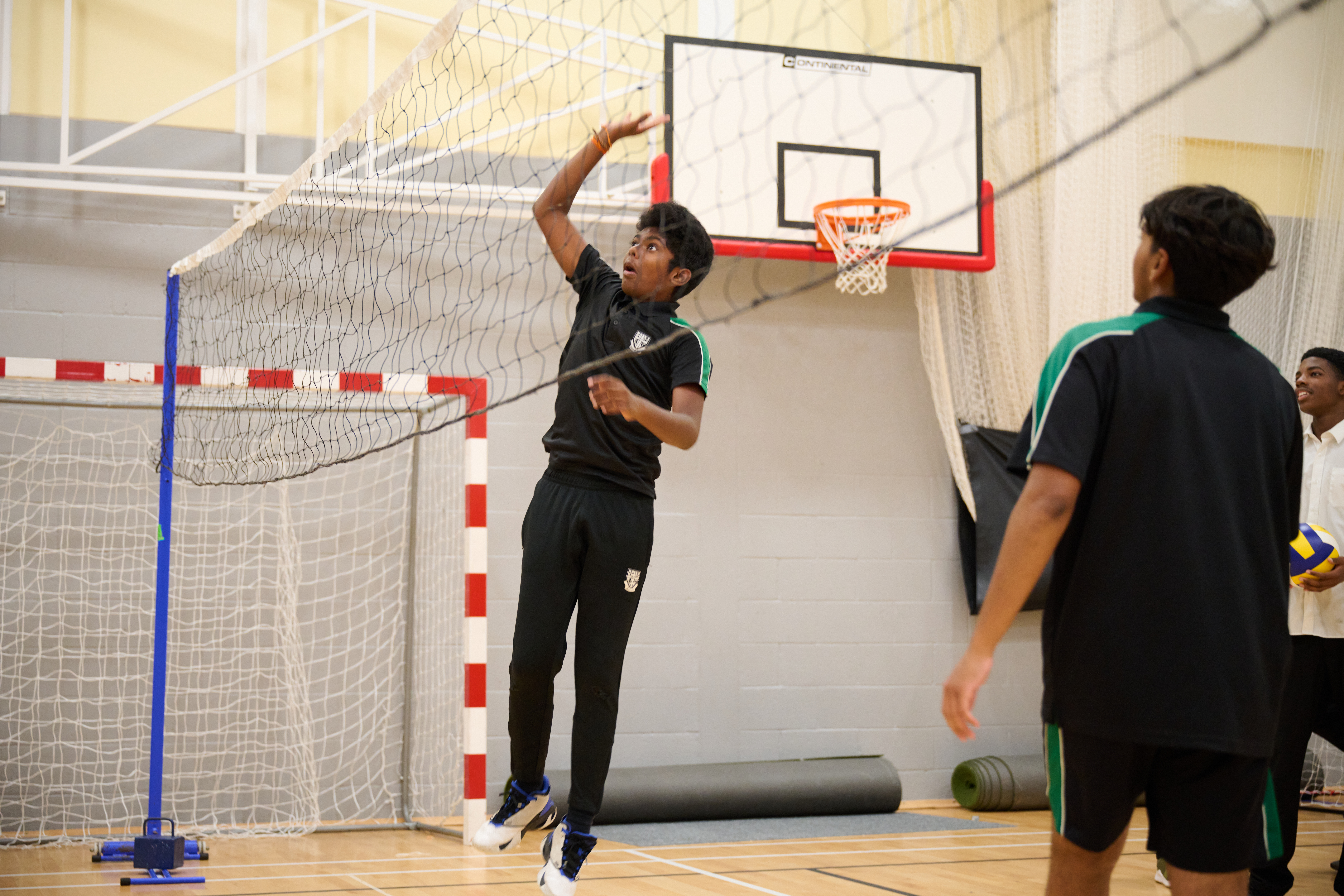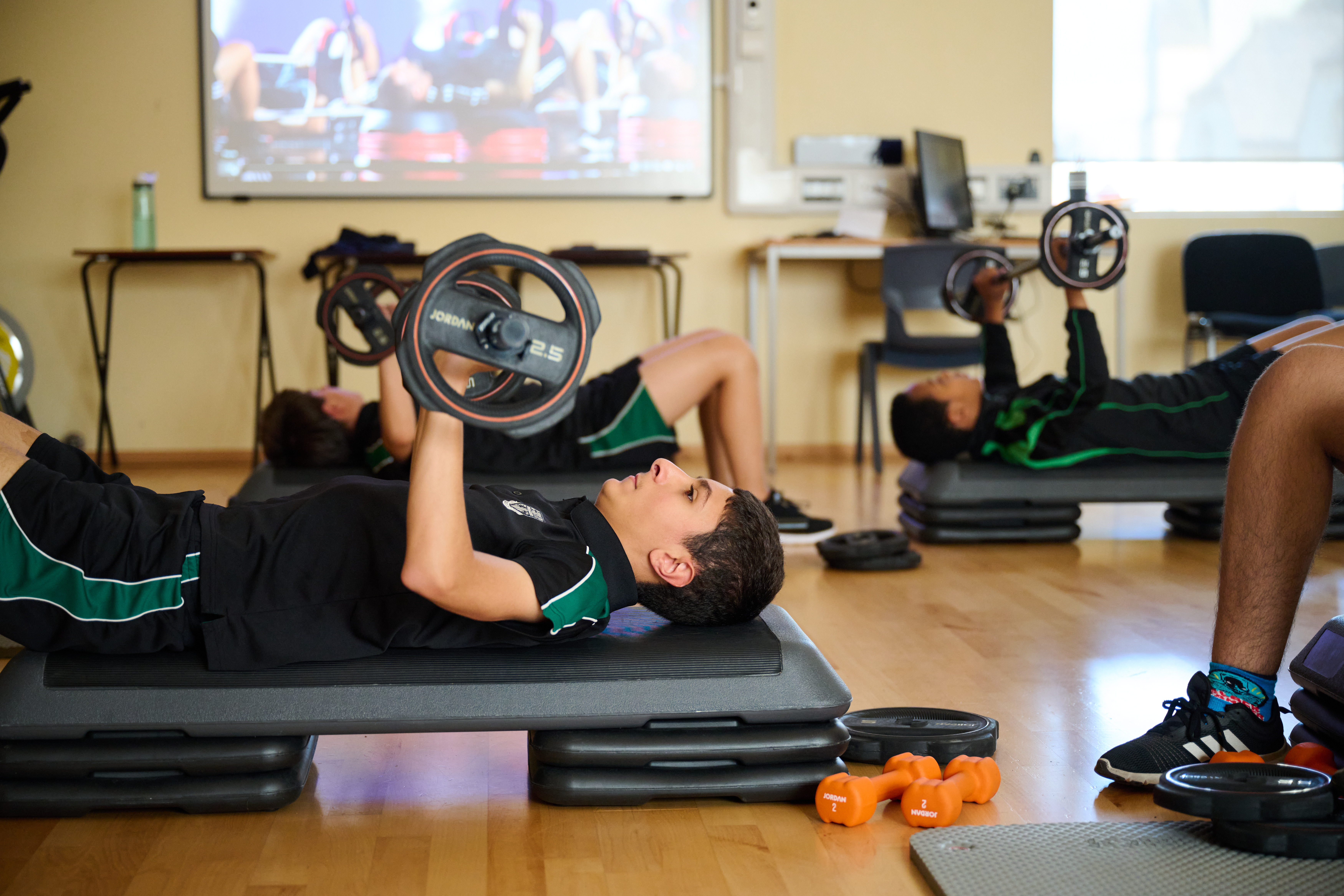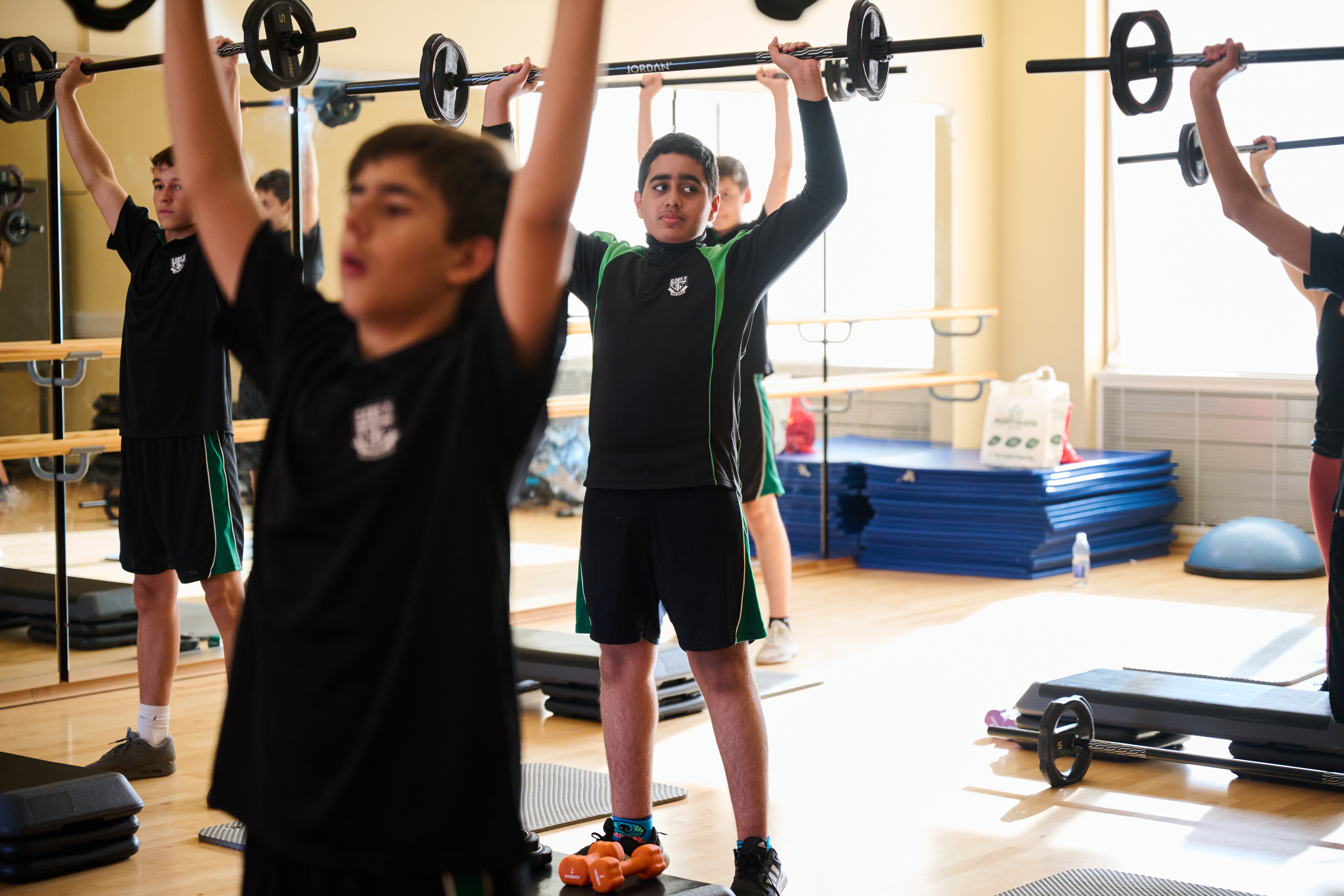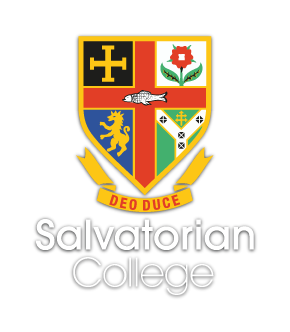Physical Education
Physical Education
‘The most unlikely of people, in the most improbable of circumstances, can become extraordinary.’ John Amaechi OBE is an English American psychologist, consultant and former professional basketball player.
At Salvatorian College we recognise the importance of PE and the role it has to play in promoting long term, healthy lifestyles. The intent of our PE curriculum is to provide all children with high quality PE and sport provision. It is our vision for every pupil to succeed and develop both personally and collectively achieving their potential as well as learning how to lead physically active lifestyles. We strive to inspire our pupils through fun and engaging PE lessons that are enjoyable, challenging, and accessible to all. We want our pupils to appreciate the benefits of a healthy and physically active lifestyle.
Through our teaching of PE, we will provide opportunities for pupils to develop values and transferable life skills such as fairness and respect as well as providing them with opportunities to take part in competitive sport. Our students are also encouraged to nurture personal skills such a resilience, tolerance, and teamwork through the vehicle of sport.
Our Staff
Mr A Creamer – Head of Physical Education
Mr S Malik – Teacher of PE (Fixture Secretary)
Mr A Templeton – Teacher of PE
Mr D Cooper – Teacher of PE
Mr O Ezeigwe – Teacher of PE
Key Stage Three
Physical Education at Key Stage 3 – Salvatorian College
At Salvatorian College, our Key Stage 3 Physical Education curriculum offers a high-quality program designed to inspire all pupils to succeed in both competitive sports and other physically demanding activities. Our goal is to help students develop physical confidence, supporting their overall health and fitness while building character and instilling core values such as fairness and respect.
Our Key Stage 3 PE Curriculum Aims to:
Develop competence in a broad range of physical activities, enabling students to excel across different sports and physical challenges.
Ensure that students are physically active for sustained periods, promoting lifelong engagement in healthy, active living.
Provide opportunities to engage in competitive sports and activities, helping students build resilience, teamwork, and leadership skills.
Encourage students to lead healthy, active lives by nurturing a deep understanding of the importance of fitness and well-being.
Activities and Skills Development
Pupils at Key Stage 3 will engage in a wide variety of sports and activities that promote both individual growth and teamwork. These activities include:
Team and Individual Games: Pupils will learn to use tactics and strategies to overcome opponents in both team and individual games, such as football, basketball, badminton, cricket, volleyball, rugby, korfball, Gaelic football, handball, flag football and pickleball. These sports provide opportunities for skill development, decision-making, and competitive play.
Athletics and Gymnastics: In these sports, students will focus on refining their technique, improving their personal performance, and striving for their personal best through structured practice and competition.
Dance: Pupils will perform dances using advanced techniques across a variety of styles. Dance allows students to express creativity while developing coordination, rhythm, and performance skills.
Outdoor and Adventurous Activities: Students will participate in activities that challenge both the mind and body. These activities encourage teamwork, problem-solving, and the development of trust as pupils work together to overcome obstacles in outdoor settings.
Analysis and Personal Improvement
Pupils are encouraged to analyse their performances compared to previous ones and demonstrate improvement in order to achieve their personal best. This reflective approach helps students to set goals and continuously improve their physical abilities.
Beyond the Classroom
Our PE curriculum extends beyond school boundaries, with opportunities for students to engage in competitive sports and activities outside of school through community links or sports clubs. This enables pupils to deepen their skills, build connections within the local community, and foster a lifelong passion for physical activity.
At Salvatorian College, we are committed to helping our pupils thrive in both their physical and personal development, equipping them with the tools to lead healthy, active, and well-rounded lives.
Key Stage Four
KS4: 2 hours per week
GCSE (1 hour theory, 1 hour practical)
CORE PE (2 hours per week)
There is a selective GCSE pathway available to pupils at KS4. The GCSE course followed by the department is the OCR GCSE Physical Education 9-1.
In GCSE Physical Education students will learn five main areas for theory PE – Anatomy and Physiology, Physical Training, Socio-Cultural Influences, Sport Psychology and Health, Fitness and Well-Being. In these areas, they are expected to understand the knowledge of each topic, discuss the impact on health, fitness, and exercise, and apply this information to sporting examples.
The ability to apply knowledge to sporting examples is held as a high priority in classwork and homework exercises which are usually based around exam questioning. In addition, students will be assessed in 3 sports where they excel with the primary focus being on how effective and successful their performance is in a competitive situation.
The final assessed area is a piece of work that draws on the student’s ability to apply their knowledge of their sport, physical components, knowledge of movement analysis, and ability to suggest ways to improve in their sport.
Core PE will follow a similar model to KS3 Year 9 PE where students are engaged in physical activity and challenged to build personal skills that can be applied to wider society such as; Teamwork, Leadership, and Resilience.
In key stage 4 PE’s focus is on helping students to continue to develop and apply their learned skills in a range of games for understanding activities. Alongside a clear focus on students developing more responsibility for developing their understanding of the social, emotional, and physical benefits of sport and becoming inspired for lifelong participation. Therefore, at the start of year 10, PE classes will have the opportunity to experience one of two pathways to follow.
Key Stage Five
A-Level PE at Key Stage 5: A Comprehensive Study of Performance and Society
The A-Level Physical Education (PE) course at Key Stage 5 offers an in-depth exploration of how the human body performs in physical activities, the psychological aspects of skill acquisition, and the evolving relationship between sport and society. Over two years, students will gain both theoretical and practical knowledge, preparing them for further studies or careers in sports science, coaching, or health-related fields.
Year 1 Overview
In the first year, students focus on three key areas: Applied Anatomy and Physiology, Skill Acquisition, and Sport and Society. These topics lay the foundation for understanding the complexities of sports performance.
Applied Anatomy and Physiology – Students will develop a detailed understanding of how the body functions during physical activity.
Skill Acquisition – This section focuses on the psychological factors that influence the learning and refinement of skills in sports. Students will learn about:
Sport and Society – Students explore how sport and society have evolved together, focusing on:
Year 2 Overview
Building on the foundational knowledge from Year 1, students will study more advanced topics in Year 2, including Exercise Physiology, Biomechanical Movement, Sport Psychology, and the Role of Technology in Sport.
Exercise Physiology – Students will explore how long-term training and lifestyle choices affect the body, focusing on:
Sport Psychology – In Year 2, students will deepen their understanding of how psychology optimises performance, studying topics such as: Sport and Society & The Role of Technology
A-Level PE at Key Stage 5 offers a rich and varied curriculum that not only enhances students’ knowledge of physical and psychological performance but also deepens their understanding of how sport interacts with society. Through this course, students will be well-equipped for further study or careers in sports-related fields, from coaching and teaching to sports science and health industries.
Links to Future Pathways
Within the PE Department at Salvatorian College, we are constantly looking to inspire and develop a new level of talent both on and off the field of play. The sports and leisure industry has been one of the most developing over the last twenty years, with the number of jobs created for those who are not only performers, growing rapidly. The practical and theoretical knowledge students acquire here, provide them with the first step into the world of sport, allowing them to sample and learn about many different areas and aspects of sport.
Diet and Nutrition
Sport Psychology
Sport Management
Sport Development
Professional Coaching
Sport Media
Sport Owner
Sports Administration
Sports Coach
Fitness Instruction
Recreational Group Leader
Personal Trainer
Outdoor Activity Provider
Event Organiser
Sport Therapist
Student Gallery
